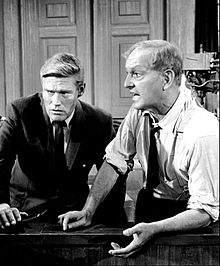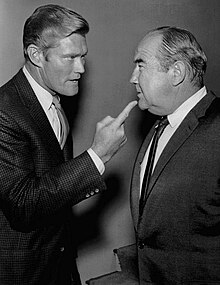
Dragnet is an American media franchise created by actor and producer Jack Webb, following Los Angeles Police Department (LAPD) Detective Joe Friday and his partners as they conduct by-the-book police work and solve crimes in Los Angeles. Originating as a radio drama on NBC in 1949, Dragnet has been adapted into several successful television shows and films, though the franchise's popularity has reduced since Webb's death in 1982. Its name is derived from the police term "dragnet", a system of coordinated measures for apprehending criminals or suspects.
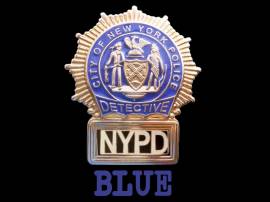
NYPD Blue is an American police procedural television series set in New York City, exploring the struggles of the fictional 15th Precinct detective squad in Manhattan. Each episode typically intertwines several plots involving an ensemble cast. The show was created by Steven Bochco and David Milch, and was inspired by Milch's relationship with Bill Clark, a former member of the New York City Police Department who eventually became one of the show's producers. The series was originally broadcast by ABC from September 21, 1993‚ to March 1, 2005. It was ABC's longest-running primetime one-hour drama series until Grey's Anatomy surpassed it in 2016.
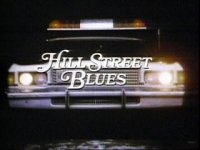
Hill Street Blues is an American serial police procedural television series that aired on NBC in prime-time from January 15, 1981, to May 12, 1987, for 146 episodes. The show chronicles the lives of the Metropolitan Police Department staff of a single police station located on Hill Street in an unnamed large city, although the opening credits show scenes from the city of Chicago, contrasted with a discussion, at the start of the eighth episode, of the Department running a summer camp for juvenile delinquents in New York's Allegany State Park. The "blues" are the police officers in their blue uniforms. The show received critical acclaim, and its production innovations influenced many subsequent dramatic television series produced in the United States and Canada. In 1981, the series won eight Emmy Awards, a debut season record surpassed only by The West Wing, in 2000. The show won a total of 26 Emmy Awards during its run, including four consecutive wins for Outstanding Drama Series.

Ironside is an American television crime drama that aired on NBC over eight seasons from 1967 to 1975. The show starred Raymond Burr as Robert T. Ironside, a consultant for the San Francisco police department, who was paralyzed from the waist down after being shot while on vacation. The character debuted on March 28, 1967, in a TV movie entitled Ironside. When the series was broadcast in the United Kingdom, from late 1967 onward, it was broadcast as A Man Called Ironside. The show earned Burr six Emmy and two Golden Globe nominations.

Police Story is an American anthology, crime-drama, television series that aired weekly on NBC from September 25, 1973, through April 5, 1977, followed by a season of irregularly scheduled television film specials from September 27, 1977, to May 28, 1978, with three further television films screened in 1979, 1980, and 1987. The show was created by author and former police officer Joseph Wambaugh and was described by The Complete Directory of Prime Time Network and Cable TV Shows as "one of the more realistic police series to be seen on television". It was produced by David Gerber and Mel Swope.
Homicide: Life on the Street is an American police drama television series chronicling the work of a fictional version of the Baltimore Police Department's Homicide Unit. It ran for seven seasons on NBC from January 31, 1993, to May 21, 1999, and was succeeded by Homicide: The Movie (2000), which served as the series finale. The series was created by Paul Attanasio and based on David Simon's book Homicide: A Year on the Killing Streets (1991). Many of the characters and stories used throughout the show were based on events depicted in the book.
The police procedural, police show, or police crime drama is a subgenre of procedural drama and detective fiction that emphasizes the investigative procedure of police officers, police detectives, or law enforcement agencies as the protagonists, as contrasted with other genres that focus on non-police investigators such as private investigators.
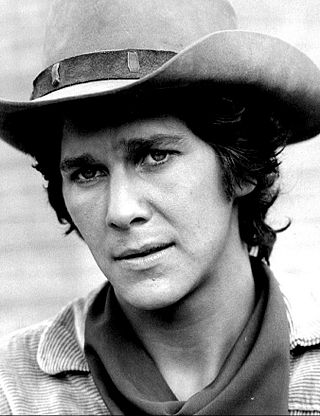
Tim Matheson is an American actor. Some of his best-known acting roles include the title character of the 1960s animated Jonny Quest TV series, Eric "Otter" Stratton in the 1978 comedy film National Lampoon's Animal House, and the recurring role of Vice President John Hoynes in the 2000s NBC drama The West Wing, which earned him two Primetime Emmy Award nominations for Outstanding Guest Actor in a Drama Series.

Ellery Queen is an American TV drama series, developed by Richard Levinson and William Link, who based it on the fictional character of the same name. The series ran for a single season on NBC from September 11, 1975, to April 4, 1976. Jim Hutton stars as the eponymous sleuth, along with David Wayne as his father, Inspector Richard Queen.
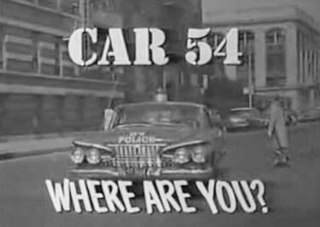
Car 54, Where Are You? is an American sitcom that aired on NBC from September 1961 to April 1963. Filmed in black and white, the series starred Joe E. Ross as Gunther Toody and Fred Gwynne as Francis Muldoon, two mismatched New York City police officers who patrol the fictional 53rd precinct in The Bronx. Car 54 was their patrol car.

Biagio Anthony "Ben" Gazzara was an Italian American actor and director of film, stage, and television. He received numerous accolades, including a Primetime Emmy Award and a Drama Desk Award, in addition to nominations for three Golden Globe Awards and three Tony Awards.

Exiled: A Law & Order Movie is a 1998 (two-hour-format) television film based on the Law & Order police procedural and legal drama television series; it originally aired on NBC. Written by Charles Kipps, the film revolves around Noth's character, Detective Mike Logan. Kipps received a 1999 Edgar Award for his screenplay.
Law & Order is a media franchise composed of a number of related American television series created by Dick Wolf and produced by Wolf Entertainment. They were originally broadcast on NBC, and all of them deal with some aspect of the criminal justice system. Together, the original series, its various spin-offs, the TV film, and crossover episodes from other shows constitute over 1,000 hours of programming.

Naked City is an American police procedural television series from Screen Gems that aired on ABC from 1958 to 1963. It was inspired by the 1948 motion picture The Naked City and mimics its dramatic "semi-documentary" format. As in the film, each episode concluded with a narrator intoning the iconic line: "There are eight million stories in the naked city. This has been one of them."

Police Woman is an American police procedural television series created by Robert L. Collins, starring Angie Dickinson that ran on NBC for four seasons, from September 13, 1974, to March 29, 1978.

John Larch was an American radio, film, and television actor.
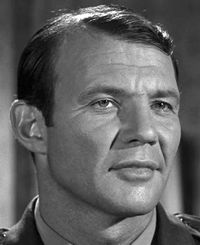
Michael Conrad was an American actor perhaps best known for his portrayal of veteran cop Sgt. Phil Esterhaus on Hill Street Blues. He won two Emmy Awards for Outstanding Supporting Actor in a Drama Series for Hill Street Blues in 1981 and 1982.
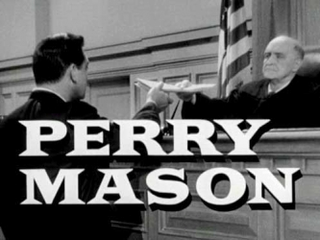
Perry Mason is an American legal drama series originally broadcast on CBS television from September 21, 1957, to May 22, 1966. The title character, portrayed by Raymond Burr, is a Los Angeles criminal defense lawyer who originally appeared in detective fiction by Erle Stanley Gardner. Many episodes are based on stories written by Gardner.

Southland is an American crime drama television series created by writer Ann Biderman and produced by Warner Bros. Television. The series was broadcast on NBC for one season in 2009, followed by four seasons on TNT from 2010 to 2013.
"Hill Street Station" is the first episode of the first season of the American serial police drama Hill Street Blues. "Hill Street Station" originally aired in the United States on NBC on Thursday January 15, 1981, at 10:00 pm Eastern Time as part of a two-week five-episode limited-run pilot airing on Thursdays and Saturdays. The episode won numerous Primetime Emmy Awards, a Directors Guild of America Award, a Writers Guild of America Award, and an Edgar Award as well as Emmy Award nominations for film editing, music composition, and art direction. The episode was directed by Robert Butler and written by Michael Kozoll and Steven Bochco.
